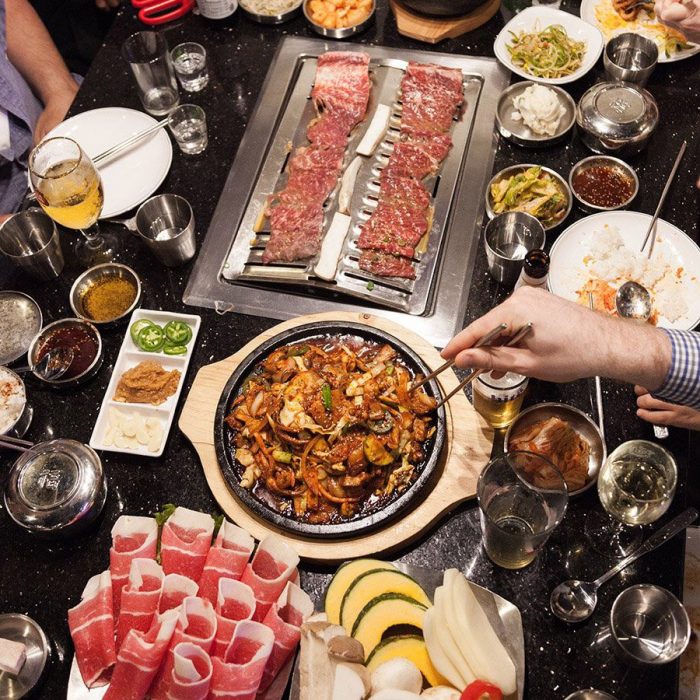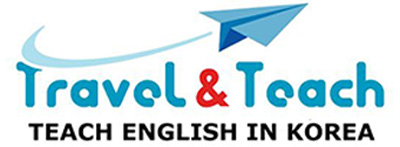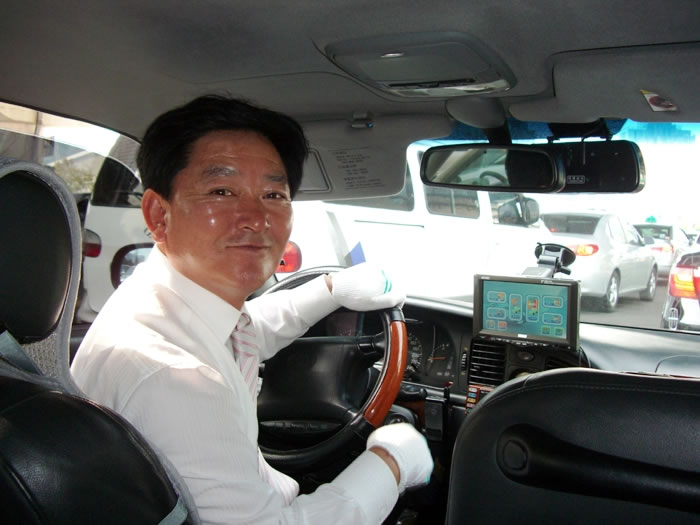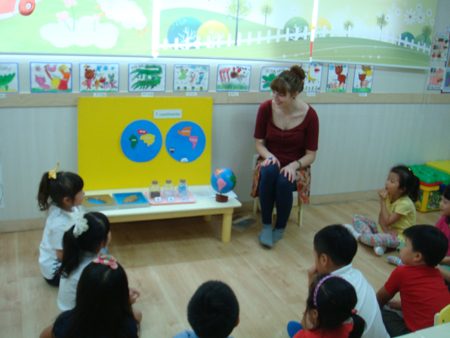There are many important things that teachers have to do to prepare after they have made the decision to teach English in Korea. The preceding months before moving to Korea are filled with navigating the visa process, finishing a TEFL course, saying goodbye to friends and family, packing and so on. While these steps are all necessary, many teachers over look something that’s very basic, but super important – learning the language! So, do you have to speak Korean to teach in Korea?
You don’t have to be fluent in Korean to teach there, but you will definitely need it for a lot of aspects of daily life outside of the classroom.
Here are the top reasons why you need to learn Korean to teach in Korea:
- Speaking Korean in your Daily Life in Korea
- Traveling Around Korea
- Relationships with Koreans
- The Many Benefits to Speaking Korean Fluently
- Classroom Management
- The Best Korean Program for Conversational Korean
Speaking Korean in your Daily Life in Korea
This is going to sound painfully obvious, but Korea is a foreign country and their language is NOT English. Despite teachers going there to teach English, it’s very important to learn some Korean.
While many younger Koreans have a decent understanding of English, you might not have as much luck with older generations. Korean culture is often timid, so even if Koreans know English, they may be too embarrassed to speak with you. This can make a lot of mundane, daily errands really difficult! Whether you need to ask for directions, order food at a restaurant, navigate a grocery store, or get your laundry dry-cleaned – there will be no shortage of times when you’ll definitely need Korean.
Eating at Korean Restaurants

Even if you have tried Korean food before leaving for Korea, you most likely have not eaten Korean as your main diet. When living in Korea, you won’t have much of a choice, and that is a good thing!
Korean cuisine is not only healthy, but absolutely delicious! There are also endless choices of dishes, making it one of the best parts of teaching in Korea.
However, if you do not speak any Korean whatsoever, you will simply be missing out as you will not be able to order food if you don’t know the basics.
The good news is that the basics are all you need! Learning how to say simple words like ‘this’, ‘please’, ‘more’, ‘one’ or ‘two’ are enough to get your point across and your desired food on the table in front of you.
The other good news is that many Korean restaurants have pictures on the menu, so pointing to your desired dish while saying ‘this please’ is all you need. Once you advance to learning how to read Korean (which you can do in a matter of hours!), you will then be able to sound out the words and then say ‘please’. And that’s it!
Now, if you are eating with other Koreans and want to pay for the dinner, this is how you do it:
Learn more about how to start speaking conversational Korean through the Beeline Language Korean Program here.
Ordering Take-Out Food in Korea
Most days when you arrive at your apartment after a day of teaching, you will find your front door covered in flyers from local restaurants. They will have pictures of delicious food – anything from friend chicken to pizza to local Korean dishes – and you WILL want to pick up your phone and order. However, this is simply not possible if you try and speak English with the person answering the phone.
All you will need in this case is 1) to be able to read the name of the dish you want 2) give your home address (you will have to learn this) 3) and say ‘please’. Within about 20-30 minutes at the most, the delivery person will be at your door with your dinner in full plating and proper cutlery. You will pay for your meal – but will not tip, as that is not done in Korea – and afterwards, you will leave the dishes outside of your front door which will be picked up later by the driver.
The take-out experience in Korea is enough reason for you to learn some of the language!
Read more here about ordering Korean take-out food
Small Talk with Local Koreans
Being one of the only Westerners in the area, you will get more attention from the locals than you otherwise would back home. This isn’t intrusive or uncomfortable but rather something you will just get used to. It can also be fun as children will randomly yell out ‘Hello! How are you? Nice to meet you!”.
You will also be running into the workers at your local convenience store, the bakery you buy your morning snacks at or even the caretaker of the apartment building you are in.
In all of these cases, these people will want to greet you and speak to you. The feeling of knowing what they are saying to you and being able to respond, even with elementary Korean is nothing short of wonderful. They will also give you a great reaction as Korean people LOVE when westerners even attempt to speak their language!
Here is how to say hello in Korean:
Traveling Around Korea
Did you know that Korea, who has a population over 45 million people, has a land mass of only 1/7 the size of Texas? In other words, it’s very small! On top of that, 70% of the Korean peninsula is covered by mountains.
So what does this mean to you, an English teacher in Korea? It means that you can travel from one end of the country to the other in a matter of hours! Each and every weekend, day off or vacation, English teachers hop on a train or a bus and are in a completely new city in no time.
With fast and cheap transportation, traveling around Korea is definitely one of the highlights for teachers teaching there.
However, travel for those with absolutely no Korean under their belts is no easy task.
Buying Train and Bus Tickets in Korea
So your first stop on your weekend trip will be to either the bus or train station, where the ticket vendors will certainly speak English, right? Wrong!
Although many Koreans speak some English, it is often like pulling teeth to get them to actually communicate with you, so they will resort to speaking to you in Korean first. Communicating with someone like this will still be difficult to get your point across or a ticket to where you are going. Try asking more in-depth questions about seating, what platform number you are on, etc. and you likely won’t get too far.
Taking Taxis in Korea
You may not use taxis in your hometown as your main mode of transportation as they are usually quite expensive, especially in large cities like New York or Toronto.
However, in Korea taxis are not only inexpensive, but they are seemingly always there when you need one! On top of that, they are all nice and clean cars that are well taken care of by the driver who will likely be wearing white gloves :)
And the best part is that you will not – or cannot is the better word – tip the driver. This gesture, while much appreciated in most cities around the world – is seen an an insult. That’s right – it’s an insult if you offer the driver more money than they are asking for. The reason for this is that you are telling them that their job is so low that you feel the need to overpay for the service!
But how do you get where you want to go? It’s actually not as hard as you may think. With directional words like ‘left’, ‘right’, ‘straight’ followed by ‘please go’, you will get to where you are going.
On your way home? You’ll need to know your address followed by ‘please go’. It’s that easy if you know just a few words…but extremely difficult if you speak no Korean at all.
Once you get out of the taxi, a simple ‘thank you’ will be a great way to end your trip.
This is how to say thank you in Korean:
Asking for Directions in Korean
Let’s say you are on your way to meet a friend at a popular fried chicken restaurant called ‘Chi-Mek’ at Gwangyuk Subway station.
You get to the station just fine, but once you make it to street level, you have no idea which direction to take. So what do you do?
If you speak some Korean, you simply ask anyone ‘Where is Chi-Mek Restaurant’. As it is very popular in that area, they will give you directions – i.e. left, right, go straight and you will know where to go. Just a few simple Korean words and your problem is solved.
Booking Hotel Rooms in Korea
Once you arrive at your destination, you will need to get yourself a hotel or motel room. It is more likely that you will stay at a motel, as they are much less expensive, but are extremely clean and enjoyable to stay at.
Once you approach the desk at the motel, you will be asked questions such as ‘how many people?’, ‘how many nights?’, etc.
So how do you answer?
Even if your Korean is at a basic level, you will pick up on some words in the questions you will be asked such as ‘how many?’ (which is a very common question you will be asked in many situations), and can then answer using the few numbers you have learned, such as one, two or three. And that is all it will take to get you a room…and a smile from the clerk :)
Here is how to count from 1-4 in Korean:
Relationships with Koreans
Falling in Love in Korea
From Korean boys who look (or just dress like) K Pop stars, and Korean women being some of the most beautiful in the entire world, there just might be a chance that you will fall in love when living and teaching in Korea. So if you meet that man or woman who instantly captures your heart, how will you communicate with them?
You guessed it! You need to know how to speak some Korean!
Making Korean Friends
Aside from possibly meeting the love of your life in Korea, befriending Koreans is also possible as long as the language barrier isn’t too great.
Koreans are simply some of the nicest, warmest and friendliest people you will ever meet, and are more than happy to introduce you to everything that Korea has to offer. So don’t feel like your western co-teachers are the only people you will be making friends with!
The Many Benefits to Speaking Korean Fluently
In a year or two after you have left Korea, you will likely be in the search for a job or a career. If you used your time in Korea wisely and dedicated a real effort to learn Korean to a conversational or even fluent level, you will have SO many options available to you.
As Korea has concentrated on expanding their economy on a global scale, there are abundant opportunities for those who are able to speak English and Korean.
The U.S-Korean Free Trade Agreement was the start or this global expansion but has steadily been growing ever since, making Korean one of the most popular languages to learn in the world.
So if you have any interest at all in learning Korean, don’t worry about what you will use it for in the future – it will be absolutely useful to you and will open up doors that you never knew existed!
The Best Korean Program for Conversational Korean
When you start out learning Korean, we do not recommend using books or starting with grammar. What we recommend is learning how to speak your first Korean words.
Being able to speak some basic words in Korean – and knowing that you are being understood – will be all of the motivation you will need to keep going.
The Beeline Language Korean Program will provide just that for you.
Get started by accessing the entire 3-level program now!
Classroom Management
One of the key reasons for picking up some Korean is classroom management.
You will most likely be teaching kindergarten, elementary or middle school students. Although you’ll see them in English class, they will eventually (if not immediately) want to switch into Korean. Having an understanding of Korean will help you use commands and let you in on what they’re talking about.
Also, if you can speak a little bit of Korean, most students will think you’re fluent. At that point, Korean is no longer their “secret code.”
The Full Korean Experience
The final reason for learning Korean should be pretty obvious – you’ll be living in Korea!
Just imagine a foreign person moving to the U.S. or Canada. Would it be pretty ridiculous if they didn’t try to learn any English?? Yes – it would be ridiculous.
Additionally, if you really want to get the most of the experience you owe it to yourself – and to the locals – to at least try to learn some of their language!
So, don’t be that foreigner who lives and teaches English in Korea for a year (or more) without picking up some basics. It will definitely make your life easier. Also, it will show the locals that you care about them and their culture because you’re making an effort.




